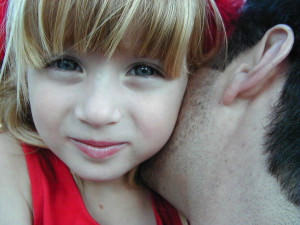Tag Archive for: fathers

Building A Happy Family – 3 New Lessons
Even though I've written a book about parenting, the process of building a happy family continues to evolve, and after raising four children over a period of thirty-six years, there are a few things that stand out as lessons learned. Here…

The Homework Heretic
It’s back-to-school time and homework is in the news. Mrs. Brandy Young, a brilliant second-grade teacher in Godley, Texas sent a note home to parents explaining that her students would have no “formally assigned” homework this year.…

Self-Respect – A Key Parenting Ingredient
Teaching our children respect for others starts with teaching them respect for us, and this can be done without sacrificing our children's individuality or personal development. First, we have to believe in the importance of our role as parents,…

Three Important Parenting Questions
As JoAnn and I began navigating the parenting waters, we found that, in the process of defining our values, we were also determining some basic rules for running the family ship "our way." These were our first three basic questions:
Is…

The Evolving Dad
We’re evolving – all of us – and so is our world, or should I say “our worlds” as each of us is surrounded by our own experience.
As society has shifted away from the “good ‘ol days” (a “Madmen” episode filled with smoke…

The High Cost of Bad Parenting
I believe that most parents are good parents. It’s my observation that a majority of our citizens are well-behaved, respectful, and law-abiding. But I also see a society that devotes an immense amount of energy and resources to deal with…

The Hugs I Regret Not Giving
I don’t typically regret much. I believe what’s past is past. As I get older, however, the passage of time allows me to look back and consider life’s lessons.
Our children are now grown, for the most part. Our sons are certainly men,…

A Legacy Of Love
My Grandfather, Nathan, was an incredibly shy man. In addition to being very short (5’4”), he was a quiet and kind immigrant who listened far more than he spoke. He came from Russia to pursue a better life, and made his living as a bicycle-riding…

Five Easy Resolutions Every Parent Can Make
These are difficult times in which to raise children. We’ve become a culture that mistrusts authority, that believes individuals are often more important than the society, and that everyone deserves special treatment. As a result, it is up…

Ebola, Panic, and Kids
We have a daughter at Emory University, home of our country’s most advanced Ebola treatment epicenter. People ask us if we’re worried and frankly, we’re not. We’re not good with panic.
Teaching our children to remain calm, find the…
